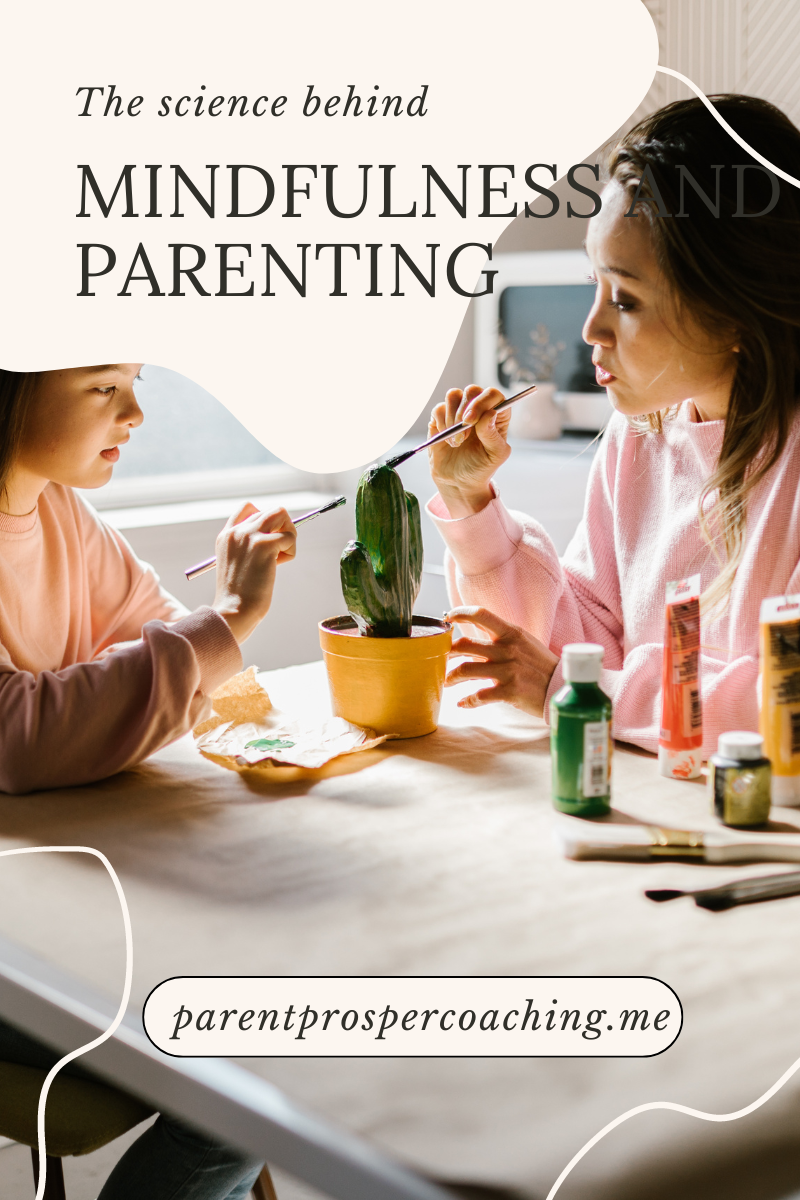Share
The Science behind mindfulness and parenting
The Science behind mindfulness and parenting

The Science Behind Mindfulness and Parenting
We have all heard about mindfulness in the last 5 or so years. It has become the buzzword for many different areas of life and there seems to be a vague mystical impression of it in the media. However, there is a growing momentum when it comes to mindfulness, and it is gaining traction in the eyes of the general public. In recent years, mindfulness has gained significant attention for its positive effects on mental health and well-being It seems, therefore, natural, that we should begin to look at parenting through the lens of mindfulness. - and this is exactly what conscious parenting does.
Without mindfulness, parents will not be able to be reflective – an important tenant of the conscious parenting approach. As parents, we are always seeking ways to improve our relationships with our children and foster a nurturing environment for their growth. Mindfulness offers a powerful tool to achieve these goals. This week, we delve into the science behind mindfulness and its transformative impact on parenting and child development.
Understanding Mindfulness
So, what exactly is mindfulness?
Mindfulness is the practice of being fully present in the moment, aware of your thoughts, feelings, and surroundings without judgment. It involves paying attention intentionally and with an open heart. For parents, this means being truly present with your children, listening to them attentively, and responding with empathy and patience.
Research on Mindfulness and Parenting
Enhancing Parental Responsiveness
Research has consistently shown that mindfulness can significantly enhance parental responsiveness. A study conducted by Duncan, Coatsworth, and Greenberg (2009) found that parents who practiced mindfulness were more attuned to their children's needs and emotions. This attunement led to more effective and compassionate parenting, fostering a stronger parent-child bond. Of course, Dan Siegal speaks about attunement at length in his work on the Whole Brain Child and also in “ the Power of showing up”
### Reducing Parental Stress
Most of us would admit that pParenting can be incredibly stressful, and chronic stress can negatively impact both parents and children. Mindfulness has been proven to reduce stress levels. A study by Bögels, Hellemans, van Deursen, Römer, and van der Meulen (2014) demonstrated that parents who participated in mindfulness-based stress reduction programs reported lower levels of stress and anxiety. This reduction in stress not only benefits the parent but also creates a more peaceful and supportive environment for the child.
Promoting Emotional Regulation
Emotional regulation is crucial for both parents and children. Mindful parents are better equipped to manage their own emotions and model healthy emotional responses for their children. A study published in the journal *Mindfulness* (2015) by Parent, McKee, and Forehand found that mindful parenting practices were associated with improved emotional regulation in children. Children of mindful parents exhibited fewer behavioural problems and had better emotional resilience. Why? Because children learn emotional regulation through co-regulation. Co-regulation cannot happen with a stressed out and reactive parent.
The Impact on Child Development
Indeed, Mindfulness doesn't just benefit parents; it also has a direct positive impact on children's cognitive development. Research by Zelazo and Lyons (2012) indicates that mindfulness practices can improve children's executive functions, such as attention, memory, and problem-solving skills. These cognitive benefits contribute to better academic performance and overall mental agility. If we think about a school environment, and how stressful that can be, we may then also turn our attention to teachers and their level of emotional regulation. Everything trickles downwards to the children.
Fostering Emotional Intelligence
This is all crucially important because Emotional intelligence, the ability to understand and manage one's emotions and empathize with others, is a key predictor of success in life. A study by Schonert-Reichl et al. (2015) found that children who participated in mindfulness programs demonstrated higher levels of emotional intelligence. They were more empathetic, better at managing their emotions, and exhibited greater social skills.
Practical Tips for Mindful Parenting
Practice Deep Breathing
Deep breathing exercises can help both parents and children calm their minds and bodies. Taking a few moments to breathe deeply can reduce stress and improve emotional regulation.
Engage in Mindful Listening
When your child speaks to you, give them your full attention. Listen without interrupting or planning your response. This practice fosters better communication and strengthens your bond.
Create Mindful Routines
Incorporate mindfulness into your daily routines. Whether it's during mealtimes, bedtime, or playtime, being fully present in these moments can enhance your connection with your child.
Model Mindfulness
Children learn by observing their parents. By practicing mindfulness yourself, you set a powerful example for your child to follow. Show them how to handle stress and emotions mindfully.
The science behind mindfulness and parenting is clear: mindful practices can profoundly improve the parent-child relationship and support healthy child development. By incorporating mindfulness into your parenting, you create a nurturing environment where both you and your child can thrive. As we continue to explore the benefits of mindful parenting, remember that small, consistent steps can lead to significant positive changes in your family's life.
By embracing mindfulness, you not only enhance your own well-being but also lay a strong foundation for your child's emotional and cognitive growth. So, take a deep breath, be present, and embark on this journey of mindful parenting with an open heart and mind. Your family will thank you for it.




